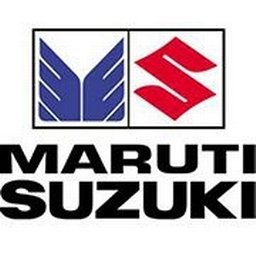Job Opportunities in India
July 14, 2024
DIZA ENTERPRISES PRIVATE LIMITED
FULL TIME
Fire Pipeline fitter & welder
As a fire protection system pipeline welder and fitter, your job responsibilities may include:
1. Reading and interpreting blueprints and specifications: You will be responsible for reviewing and understanding the blueprints, drawings, and specifications related to the fire protection system pipelines. This will help you determine the layout, dimensions, and materials required for the project.
2. Welding and fitting pipes: Your primary task will involve welding and fitting pipes together to create the fire protection system pipeline. This may include cutting, grooving, threading, and beveling pipes to the required dimensions. You will use various welding techniques, such as stick welding, TIG (tungsten inert gas) welding, or MIG (metal inert gas) welding, to join pipes securely.
3. Selecting and preparing materials: You will assist in selecting the appropriate materials for the fire protection system pipelines, such as steel pipes, valves, fittings, and flanges. Properly preparing the materials by cleaning, deburring, and applying coatings or sealants may be necessary to ensure the integrity of the pipeline.
4. Assembling and installing pipe supports: You will be responsible for assembling and installing pipe supports, hangers, and brackets to secure the fire protection system pipelines. This will involve accurately measuring and positioning the supports according to the project specifications.
5. Conducting quality control inspections: Throughout the installation process, you will perform visual inspections to ensure the welds, fittings, and connections are done correctly and meet the required quality standards. This may involve using inspection tools, such as measuring tapes, gauges, and levels.
6. Collaborating with the installation team: You will work closely with other members of the installation team, such as engineers, technicians, and other welders or fitters, to coordinate tasks effectively. Clear communication and teamwork are essential to ensure the smooth installation of the fire protection system pipelines.
7. Following safety procedures: Working with fire protection system pipelines involves potential hazards, so it is crucial to follow safety protocols and guidelines. This may include wearing appropriate personal protective equipment (PPE), adhering to safety regulations, and conducting regular safety checks to mitigate risks.
8. Maintaining welding equipment and tools: Proper maintenance of welding equipment and tools is necessary to ensure their optimal performance. You will be responsible for cleaning, inspecting, and maintaining your welding equipment and tools, as well as reporting any issues or malfunctions to the appropriate personnel.
9. Documenting work activities: You may be required to document your work activities, including the materials used, weld specifications, and any issues encountered during the installation process. This documentation helps in record-keeping, project tracking, and ensuring compliance with relevant regulations and standards.
It's important to note that specific job responsibilities can vary based on the company, project requirements, and your level of experience. Always follow the instructions and guidelines provided by your employer or supervisor to carry out your tasks effectively and safely.
Job Type: Full-time
Pay: ₹12,000.00 - ₹18,000.00 per month
Benefits:
1. Reading and interpreting blueprints and specifications: You will be responsible for reviewing and understanding the blueprints, drawings, and specifications related to the fire protection system pipelines. This will help you determine the layout, dimensions, and materials required for the project.
2. Welding and fitting pipes: Your primary task will involve welding and fitting pipes together to create the fire protection system pipeline. This may include cutting, grooving, threading, and beveling pipes to the required dimensions. You will use various welding techniques, such as stick welding, TIG (tungsten inert gas) welding, or MIG (metal inert gas) welding, to join pipes securely.
3. Selecting and preparing materials: You will assist in selecting the appropriate materials for the fire protection system pipelines, such as steel pipes, valves, fittings, and flanges. Properly preparing the materials by cleaning, deburring, and applying coatings or sealants may be necessary to ensure the integrity of the pipeline.
4. Assembling and installing pipe supports: You will be responsible for assembling and installing pipe supports, hangers, and brackets to secure the fire protection system pipelines. This will involve accurately measuring and positioning the supports according to the project specifications.
5. Conducting quality control inspections: Throughout the installation process, you will perform visual inspections to ensure the welds, fittings, and connections are done correctly and meet the required quality standards. This may involve using inspection tools, such as measuring tapes, gauges, and levels.
6. Collaborating with the installation team: You will work closely with other members of the installation team, such as engineers, technicians, and other welders or fitters, to coordinate tasks effectively. Clear communication and teamwork are essential to ensure the smooth installation of the fire protection system pipelines.
7. Following safety procedures: Working with fire protection system pipelines involves potential hazards, so it is crucial to follow safety protocols and guidelines. This may include wearing appropriate personal protective equipment (PPE), adhering to safety regulations, and conducting regular safety checks to mitigate risks.
8. Maintaining welding equipment and tools: Proper maintenance of welding equipment and tools is necessary to ensure their optimal performance. You will be responsible for cleaning, inspecting, and maintaining your welding equipment and tools, as well as reporting any issues or malfunctions to the appropriate personnel.
9. Documenting work activities: You may be required to document your work activities, including the materials used, weld specifications, and any issues encountered during the installation process. This documentation helps in record-keeping, project tracking, and ensuring compliance with relevant regulations and standards.
It's important to note that specific job responsibilities can vary based on the company, project requirements, and your level of experience. Always follow the instructions and guidelines provided by your employer or supervisor to carry out your tasks effectively and safely.
Job Type: Full-time
Pay: ₹12,000.00 - ₹18,000.00 per month
Benefits:
- Health insurance
- Provident Fund
- Day shift
- Overtime pay
- Patna, Bihar: Reliably commute or planning to relocate before starting work (Required)
- Secondary(10th Pass) (Preferred)
- total work: 1 year (Preferred)
- ITI (Fitter) (Preferred)
We regret to inform you that this job opportunity is no longer available
Latest Job Opportunities

October 19, 2024
Quincare Pharmaceuticals Private Limited
Medical Representative
Bankura
FULL TIME
View DetailsSimilar Jobs



September 21, 2024
Reticen8 Technologies Pvt Ltd
Inside Sales Associate, Sales of Firewall, WAF, DLP etc
OTHER & INTERN
View Details